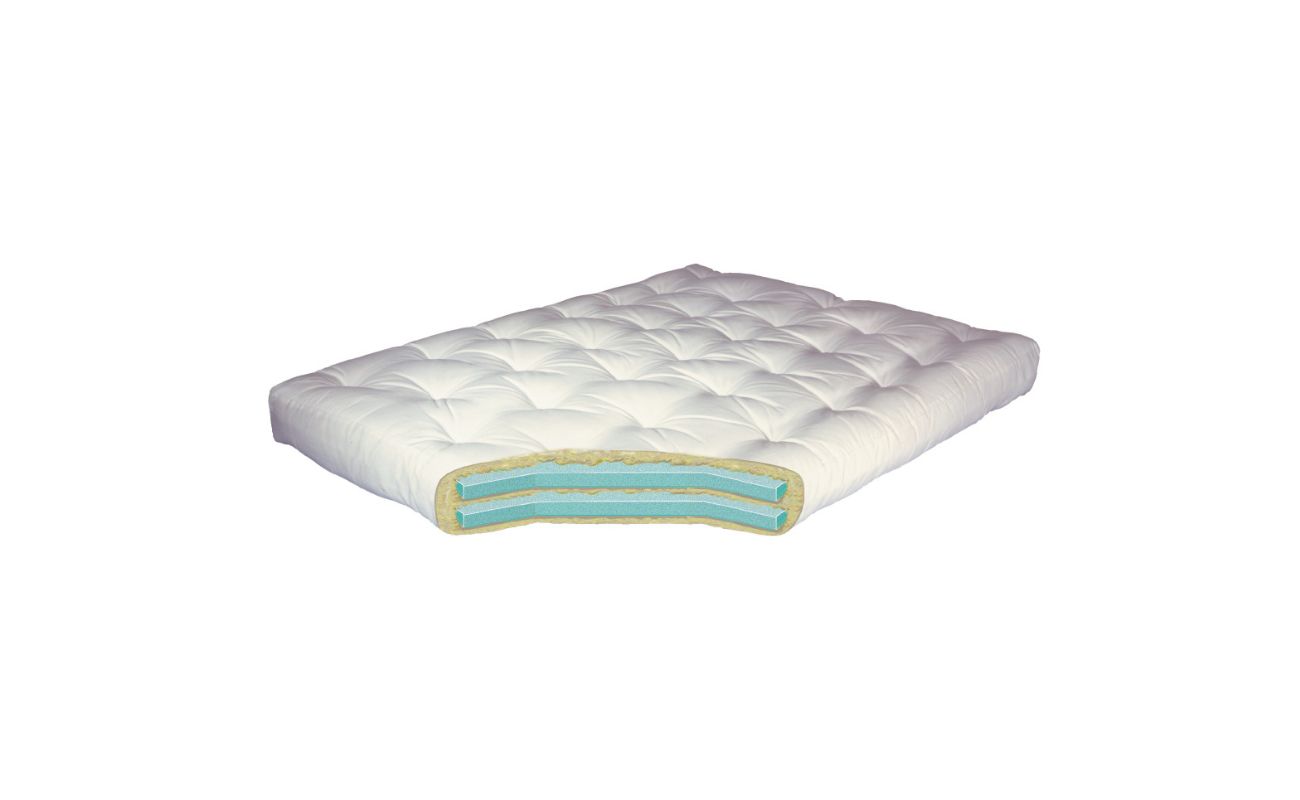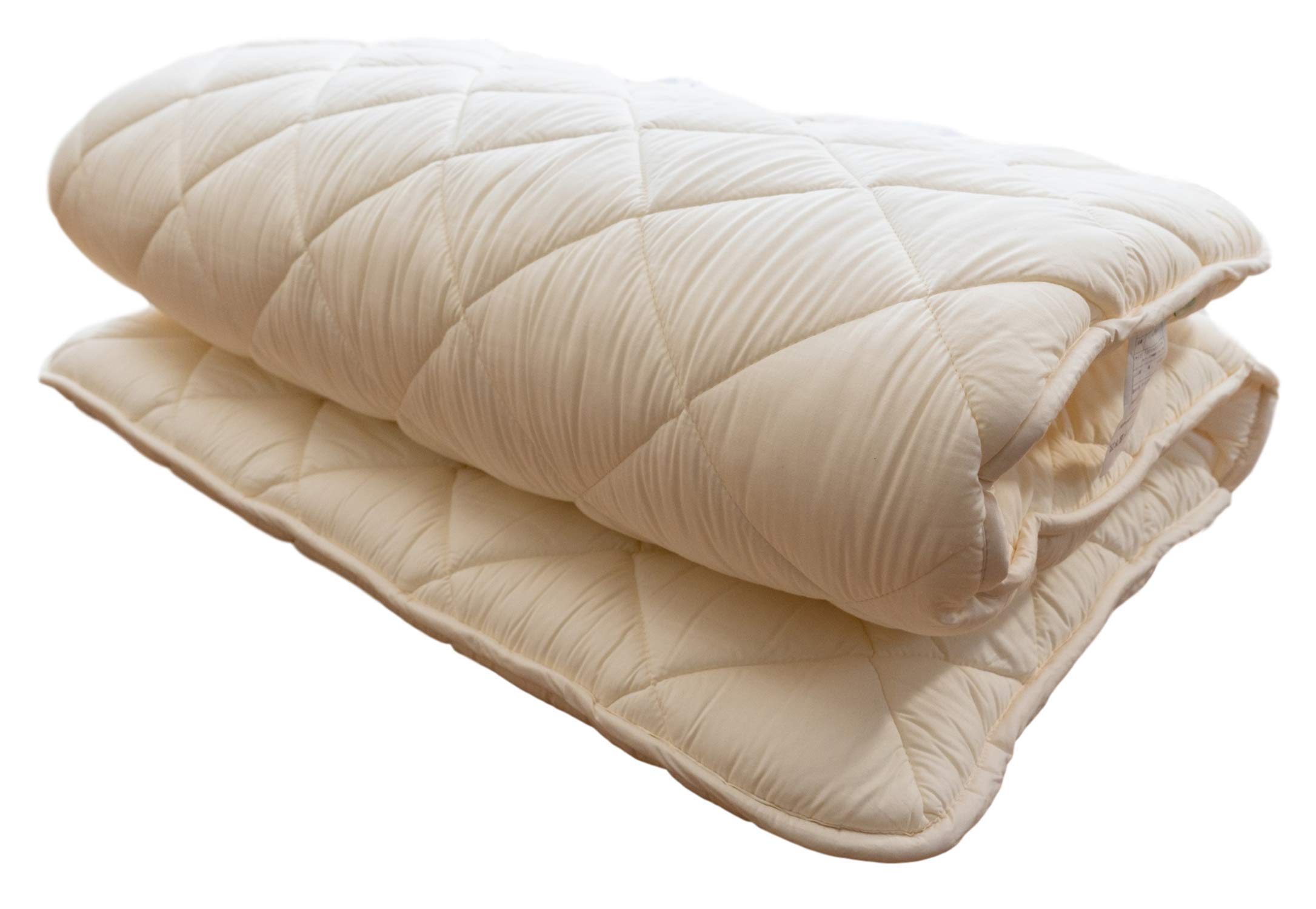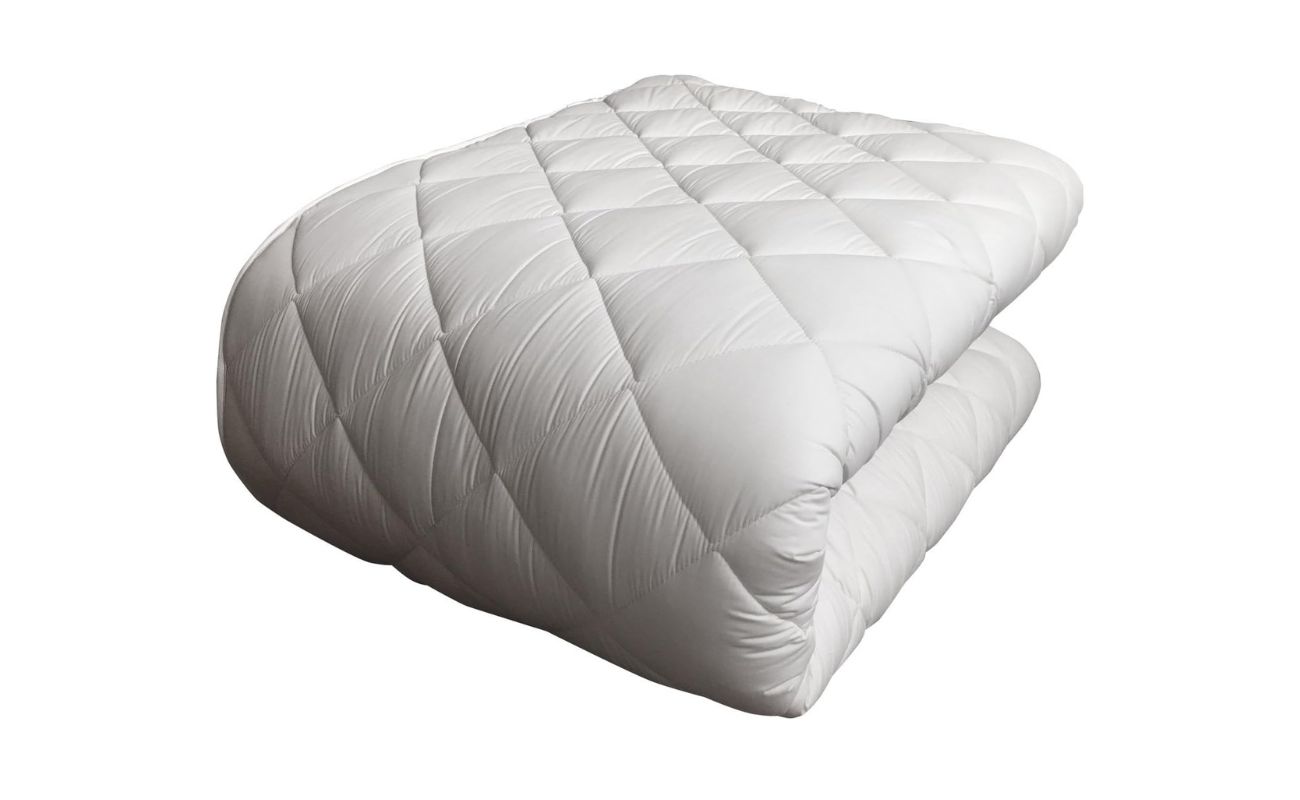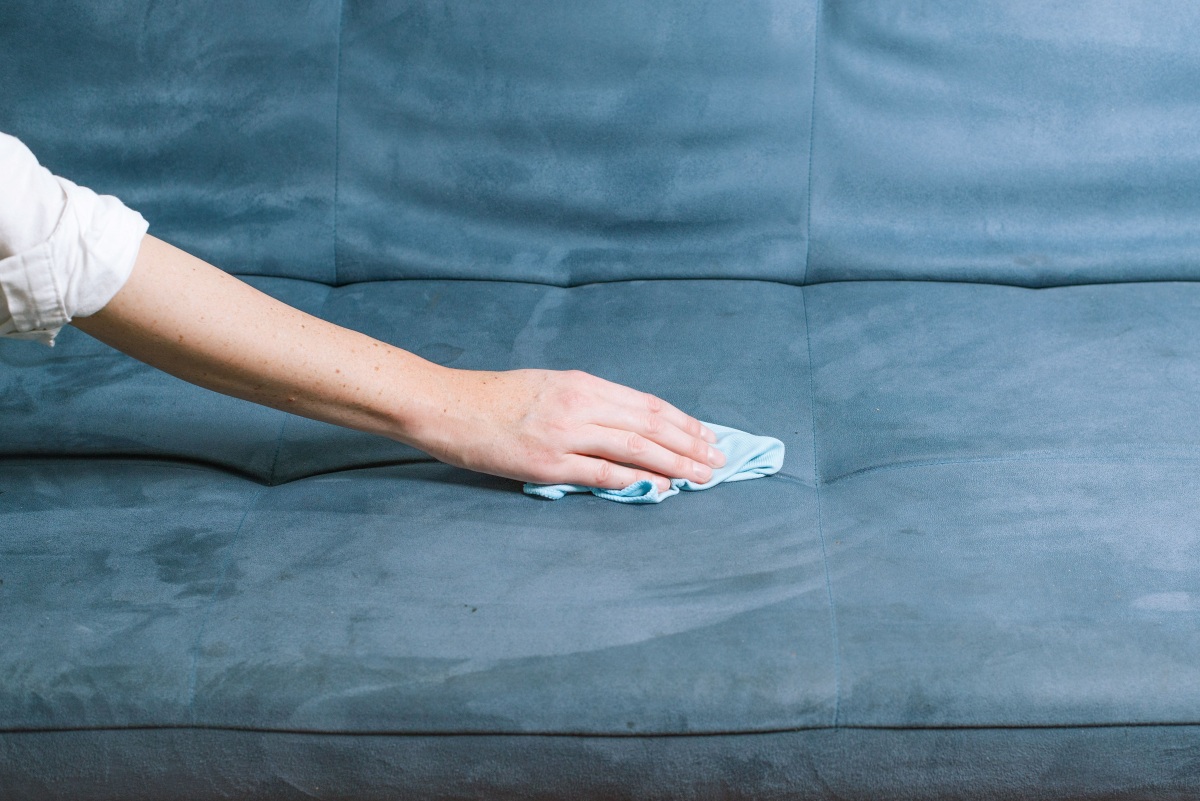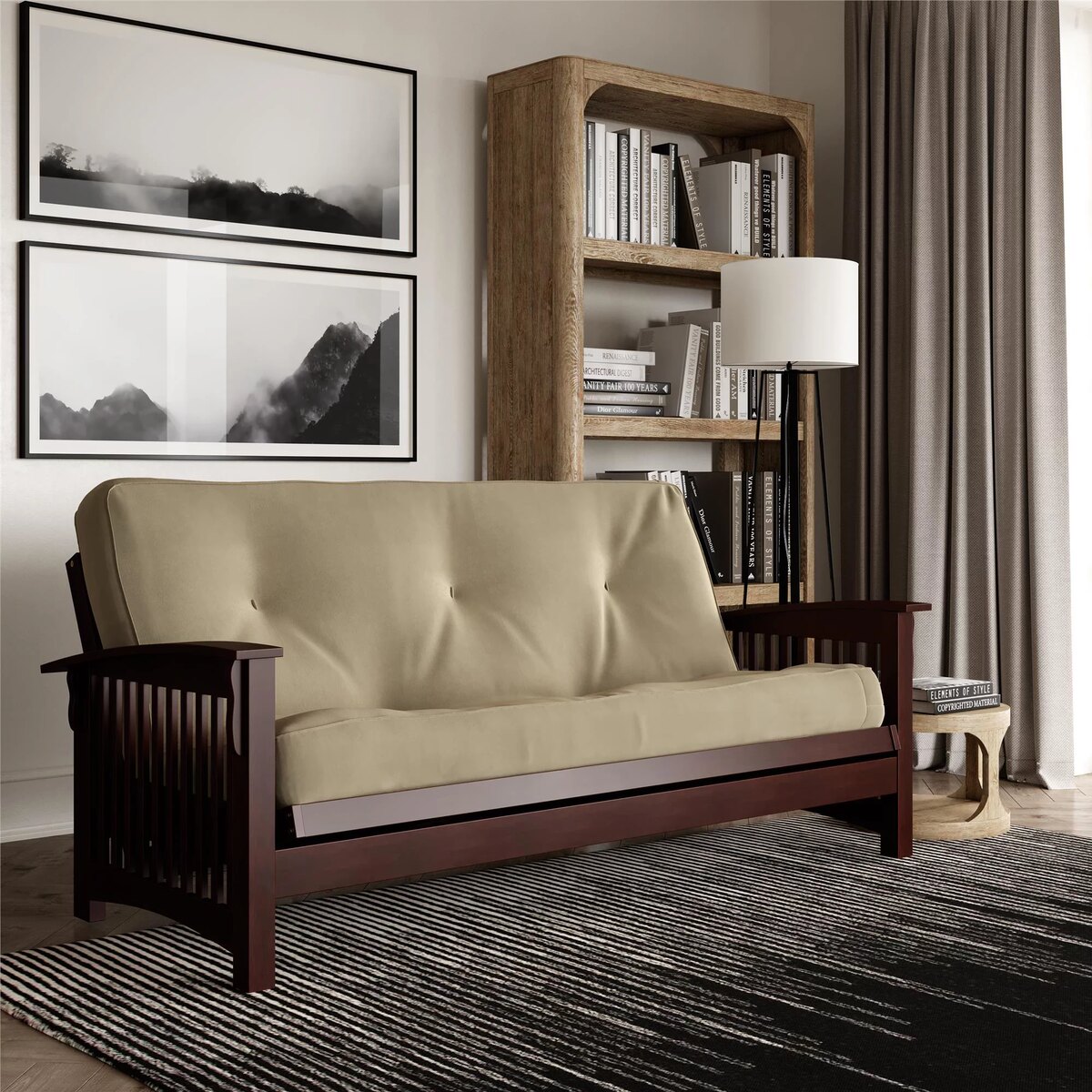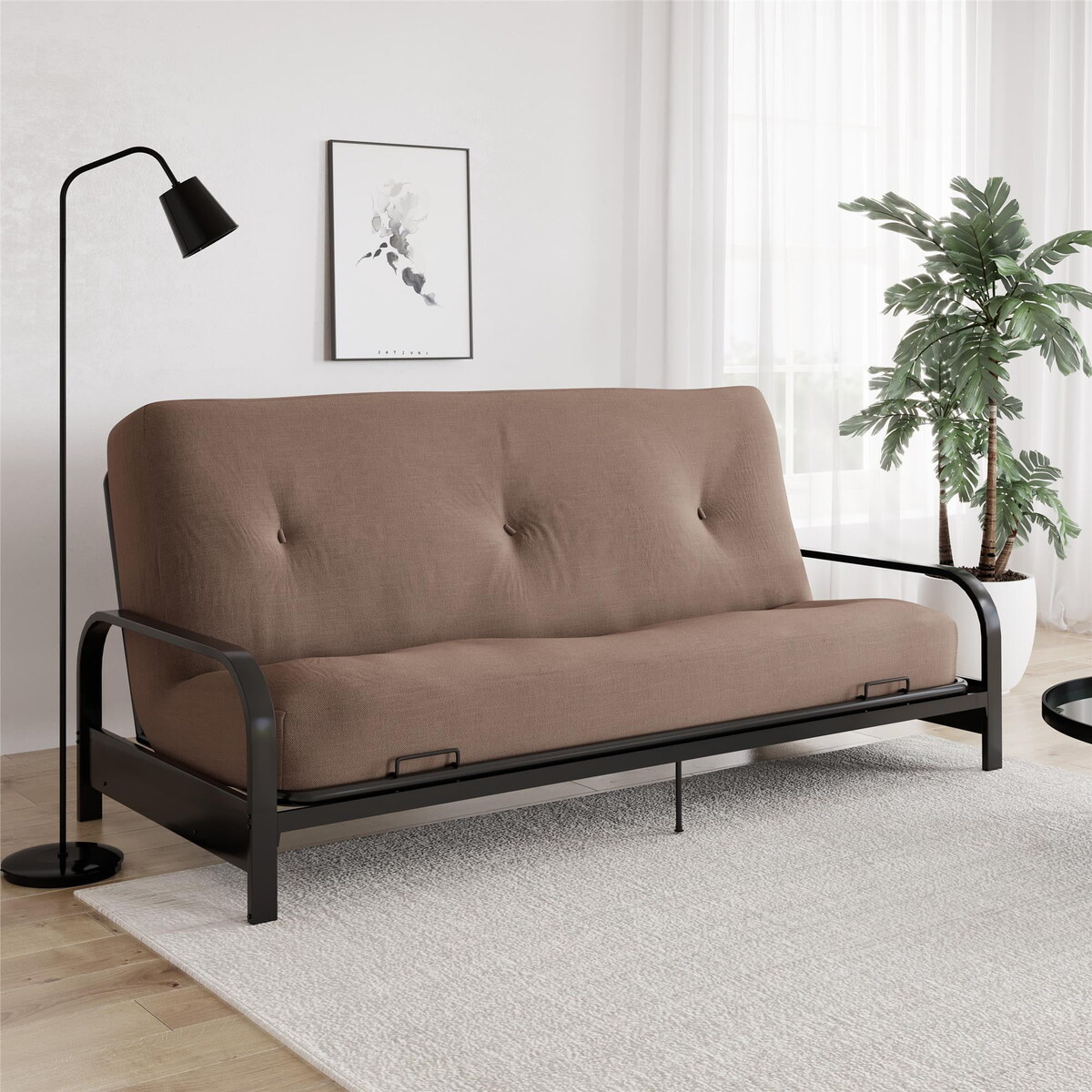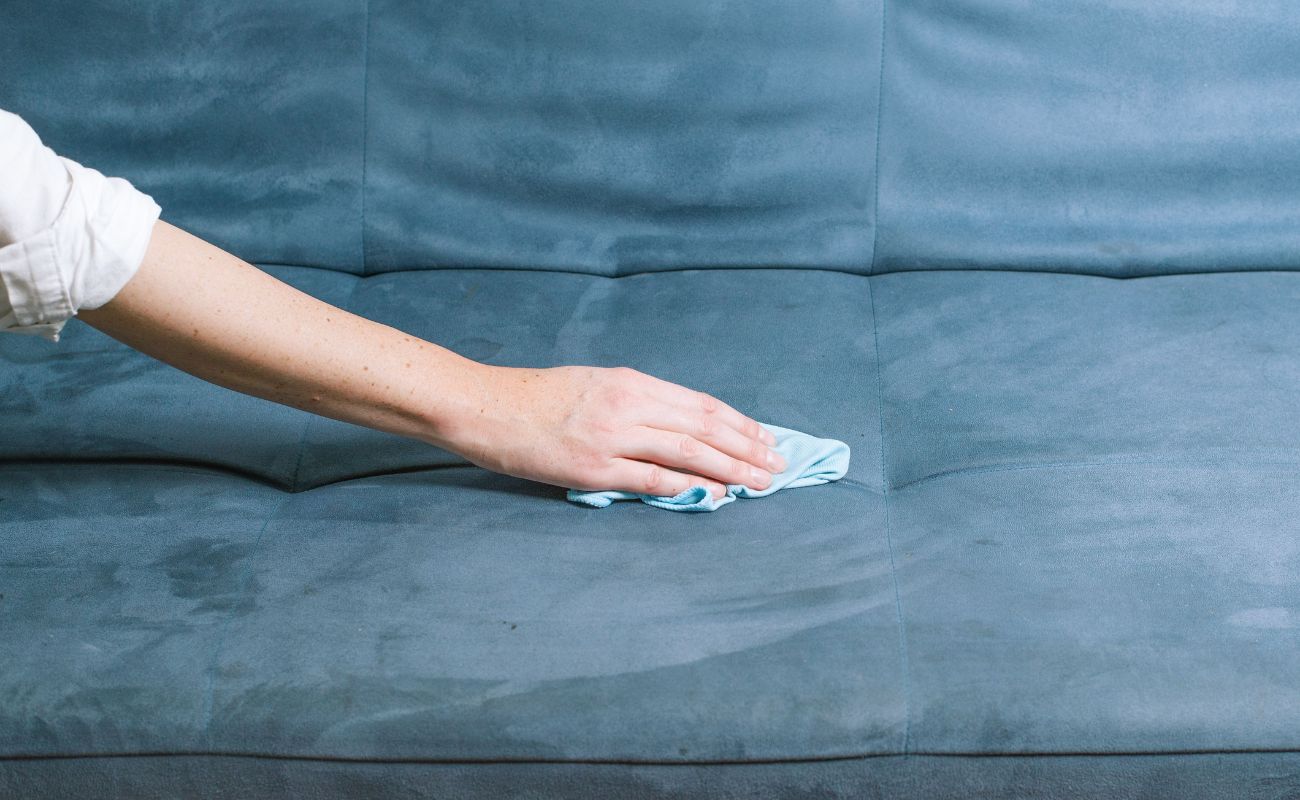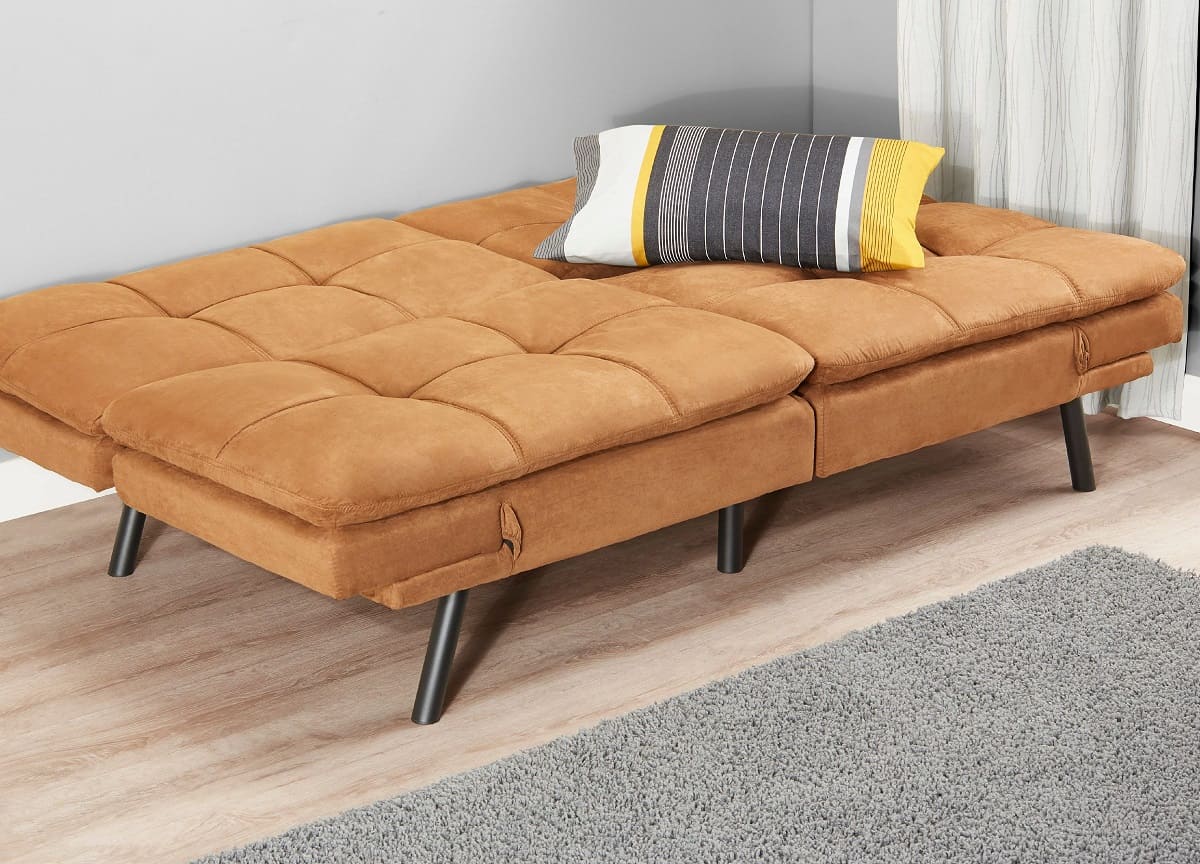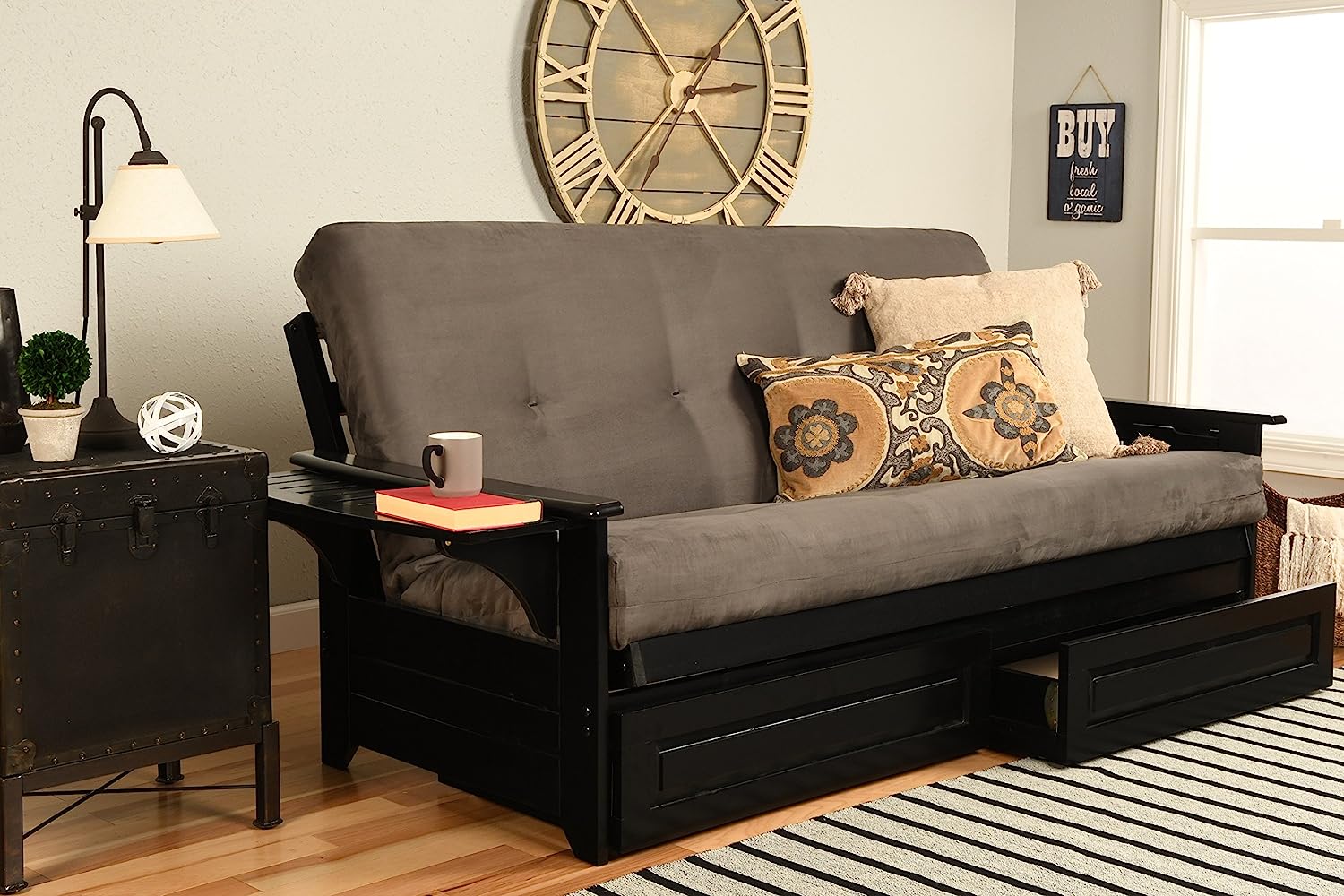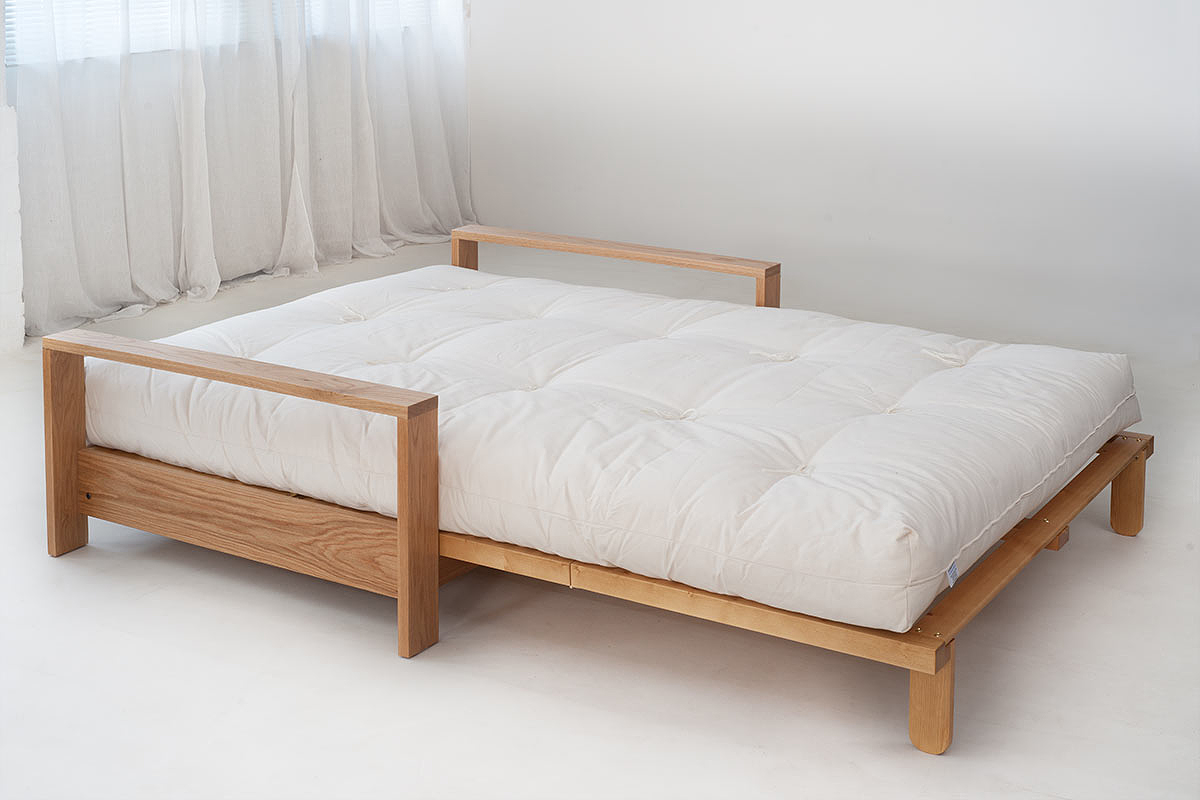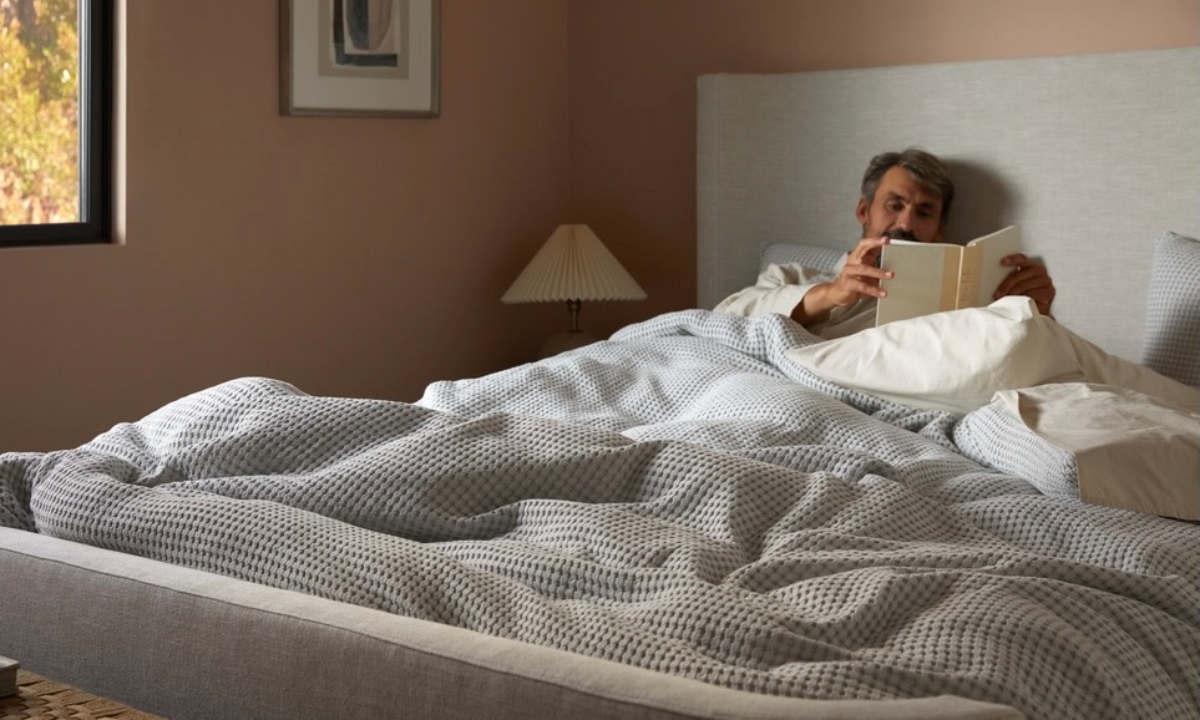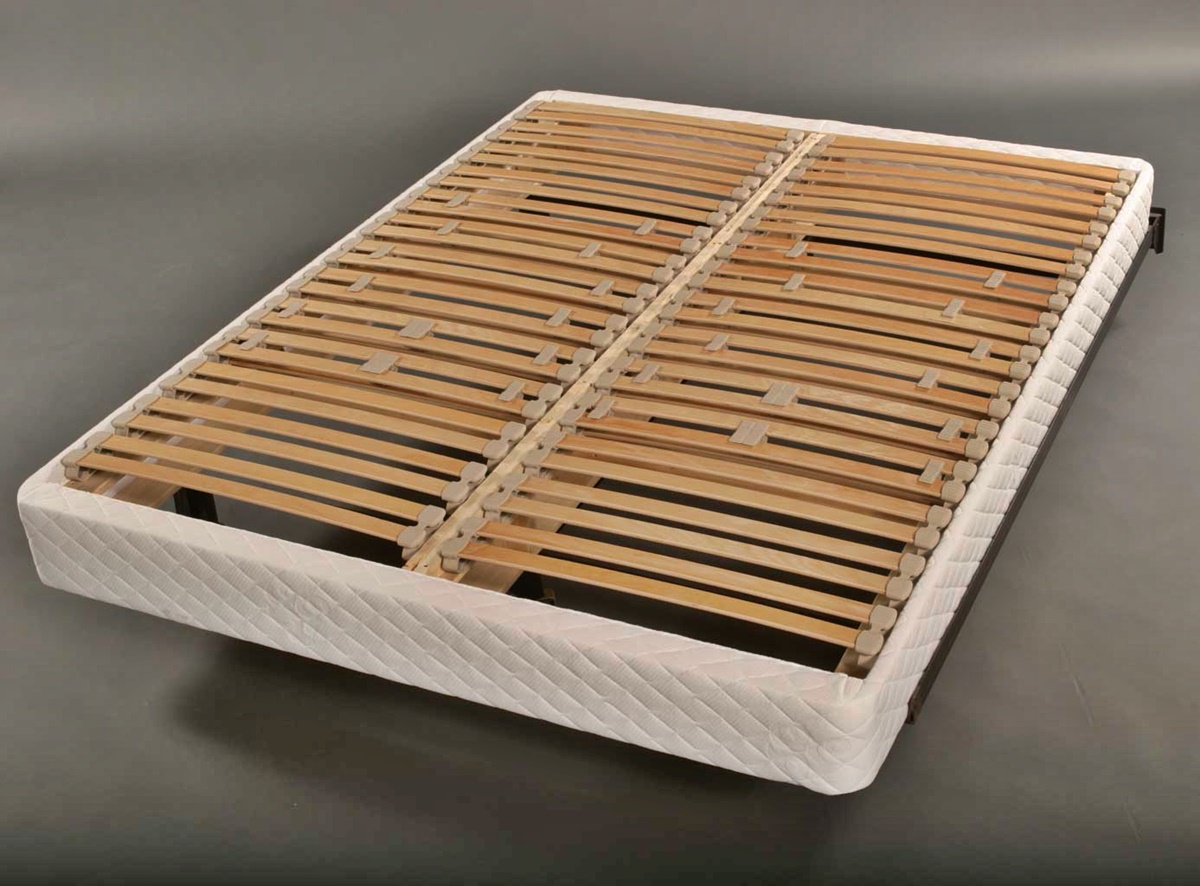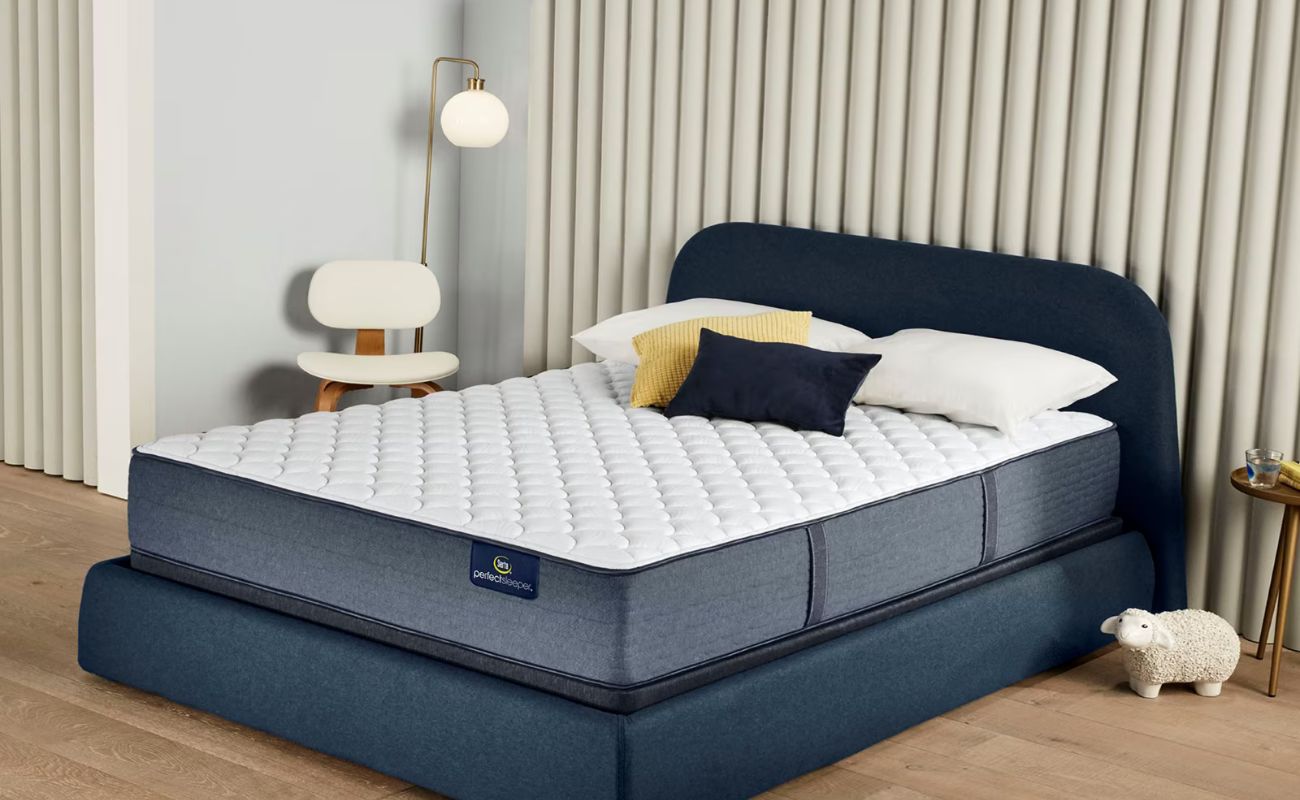Home>Furniture>Bedroom Furniture>What Is A Futon Mattress
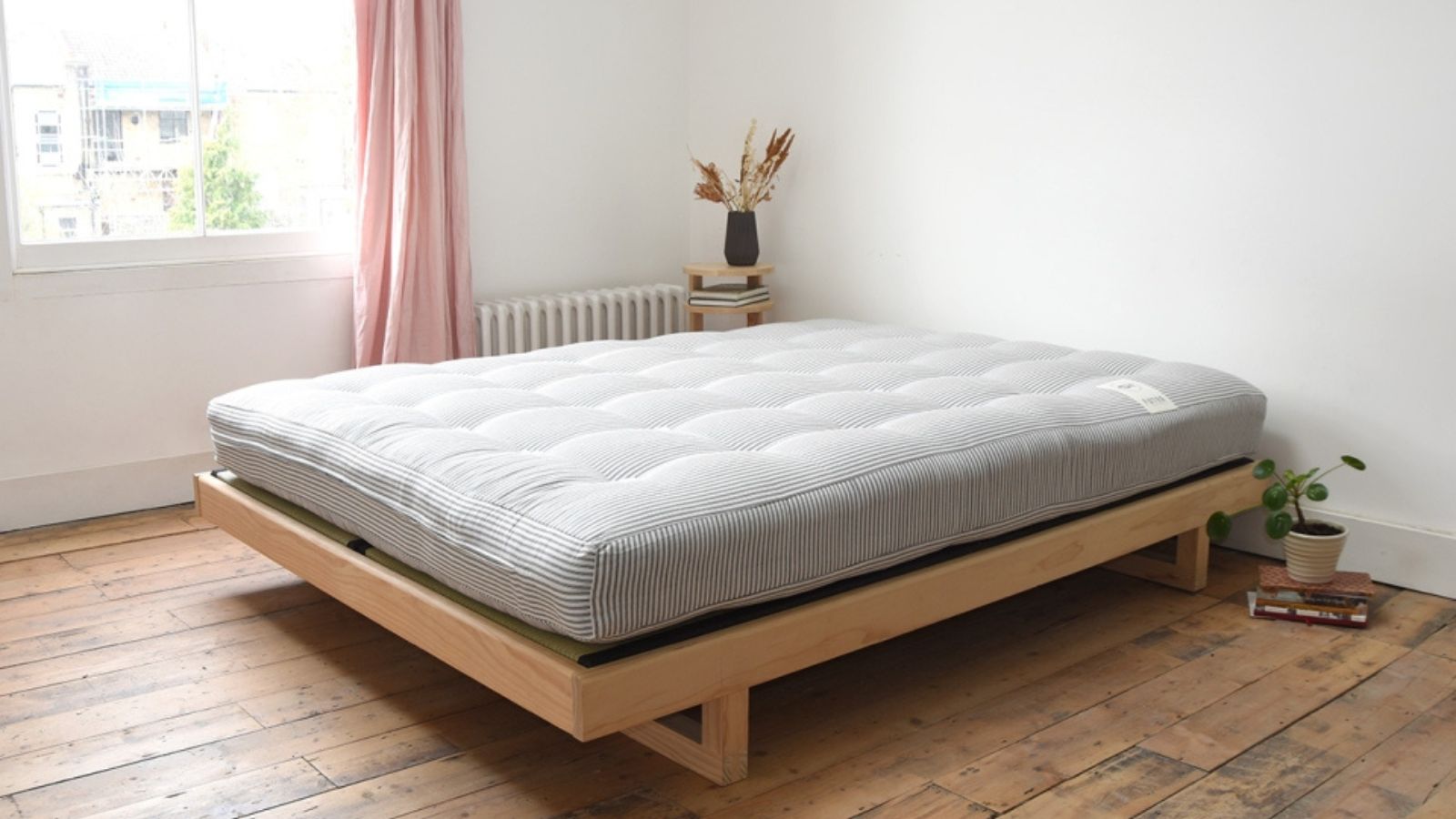

Bedroom Furniture
What Is A Futon Mattress
Modified: February 25, 2024
Discover the benefits of a futon mattress for your bedroom furniture. Versatile and comfortable, a futon mattress is a great addition to any space.
(Many of the links in this article redirect to a specific reviewed product. Your purchase of these products through affiliate links helps to generate commission for Storables.com, at no extra cost. Learn more)
Introduction
Welcome to the world of bedroom furniture, where comfort, style, and functionality come together to create a space that is truly your own sanctuary. Among the many pieces of furniture that contribute to a relaxing and inviting bedroom atmosphere, one item stands out for its versatility and practicality – the futon mattress.
A futon mattress is a unique and popular choice that adds a touch of modernity and flexibility to any bedroom. Whether you’re furnishing a guest room, a studio apartment, or a multipurpose space, a futon mattress offers a comfortable seating option during the day and easily transforms into a cozy bed at night.
In this article, we will explore the definition, history, construction, types, benefits, factors to consider, and care tips for futon mattresses. By the end, you’ll have a comprehensive understanding of what a futon mattress is and why it might be the perfect addition to your bedroom.
Key Takeaways:
- Futon mattresses offer a versatile and space-saving solution for both seating and sleeping needs. Their rich history, various types, and customizable options make them a practical and stylish addition to any living space.
- Proper care and maintenance of futon mattresses are essential for longevity and comfort. By following care tips, such as rotating, using covers, and regular cleaning, you can ensure a clean, comfortable, and durable sleeping or seating experience.
Read more: What Is The Mattress Size For A Futon
Definition of a Futon Mattress
A futon mattress is a versatile and multi-functional piece of furniture that combines a sofa or couch with a bed. It is typically constructed with a flexible, foldable design that allows it to be easily converted between a seating and sleeping surface. The word “futon” originates from the Japanese term “shikibuton,” which refers to a traditional bedding system consisting of a cotton-filled mattress placed on the floor.
Modern futon mattresses, however, have evolved to feature a more Westernized design, often incorporating a frame and a flexible mattress that can be folded in half or into thirds. The mattress itself is usually filled with layers of foam, cotton, or a combination of both, providing a comfortable and supportive surface for sitting or sleeping.
Futon mattresses come in various sizes, including twin, full, queen, and king, allowing for customization based on the available space and individual preferences. They can be used with a futon frame or placed directly on the floor for a minimalist and contemporary look.
One of the unique features of a futon mattress is its ability to be easily transformed from a sofa into a bed and vice versa. This functionality makes futon mattresses ideal for small living spaces, such as studio apartments, dorm rooms, and guest rooms, where maximizing space is crucial.
In addition to their practicality, futon mattresses also offer a wide range of design options. They are available in various colors, patterns, and fabric materials, allowing for customization to match any decor style. Whether you prefer a sleek and modern look or a cozy and traditional feel, there is a futon mattress to suit your personal style.
Overall, a futon mattress provides a versatile and space-saving solution for those seeking both seating and sleeping options in their bedroom or living area. Its flexible design, comfort, and customization options make it a popular choice among individuals looking for furniture that can adapt to their ever-changing needs.
History and Origins of Futon Mattresses
The history of futon mattresses can be traced back to ancient Japan, where they were an integral part of Japanese culture and traditional sleeping arrangements. In Japanese homes, sleeping on the floor was the norm, and futon mattresses provided a comfortable and portable bedding solution.
The origins of futon mattresses can be traced back to the 17th century during the Edo period in Japan. At that time, a style of bedding called “shikibuton” was widely used. Shikibutons were thin, cotton-filled mattresses placed directly on tatami mats. They were lightweight and easy to roll up and store during the day, maximizing the available space in Japanese homes.
As the years passed, the design and construction of futon mattresses evolved. Thicker layers of cotton and additional padding were gradually added to enhance comfort. The introduction of spring-based mattresses from the West also influenced the development of futon mattresses in Japan.
In the early 20th century, futon mattresses started to gain popularity outside of Japan. They were first introduced to the United States in the 1970s during the rise of the minimalist and alternative lifestyle movement. With their compact and versatile design, futon mattresses became a desirable option for college dormitories and small apartments.
Since then, futon mattresses have continued to evolve and adapt to the changing needs and preferences of consumers. Modern futon mattresses often incorporate foam, memory foam, or a combination of materials to provide enhanced comfort and support. The introduction of futon frames, which allow for easy conversion between sofa and bed positions, made futon mattresses even more convenient and user-friendly.
Today, futon mattresses are not only limited to Japan or small living spaces. They have become a popular choice for individuals seeking a flexible and space-saving bedding option in various parts of the world. Whether used in living rooms, guest rooms, or home offices, futon mattresses offer a practical and stylish solution for those in need of both seating and sleeping accommodations.
The rich history and cultural significance of futon mattresses make them more than just a piece of furniture. They embody the principles of simplicity, adaptability, and comfort, providing a unique sleeping experience that continues to captivate individuals worldwide.
Construction and Materials of a Futon Mattress
A futon mattress is crafted with careful consideration to ensure maximum comfort and durability. Its construction and choice of materials play a vital role in determining its overall quality and performance. Let’s take a closer look at the typical construction and materials used in a futon mattress.
The core component of a futon mattress consists of layers of filling material. Traditionally, cotton has been the primary filling in Japanese futon mattresses. Cotton provides a natural and breathable surface, offering a comfortable sleeping experience. However, modern futon mattresses may also incorporate other materials, such as foam or a combination of cotton and foam, to enhance comfort and support.
The number and thickness of the layers differ among futon mattresses, depending on the desired level of firmness and thickness. Thicker futon mattresses tend to provide more cushioning, while thinner ones offer a firmer sleeping surface. The layers of filling are often encased in a durable fabric cover, which adds to the overall durability and aesthetic appeal of the mattress.
There are different types of foam that can be used in futon mattresses, including polyurethane foam and memory foam. Polyurethane foam is known for its comfort and affordability, while memory foam contours to the body’s shape, providing pressure relief and minimizing motion transfer.
Another key consideration in the construction of a futon mattress is the tufting technique used. Tufting involves securing the layers of filling together with threaded tufts or buttons, creating a quilted appearance. This not only helps to prevent the filling from shifting but also provides a uniform sleeping surface with enhanced support.
The outer cover of a futon mattress is typically made of a durable fabric, such as cotton, polyester, or a blend of fabrics. The choice of fabric can impact the comfort, breathability, and overall aesthetics of the mattress. Cotton covers offer natural breathability and a soft feel, while polyester blends may provide additional durability and wrinkle resistance.
In addition to the core construction and cover materials, some futon mattresses may also feature additional layers for added comfort and support. These could include wool or latex layers for added insulation, moisture-wicking properties, or natural antimicrobial benefits.
It’s important to note that the specific construction and materials of a futon mattress can vary depending on the manufacturer and the intended use. High-quality futon mattresses will typically have superior craftsmanship, utilizing durable materials and construction techniques that ensure long-lasting comfort and performance.
By understanding the construction and materials used in a futon mattress, you can make an informed decision when selecting the best option for your needs. Consider factors such as firmness, thickness, filling materials, and cover fabric to find a futon mattress that meets your personal preferences and provides a cozy and comfortable sleeping or seating experience.
Types of Futon Mattresses
When it comes to choosing a futon mattress, there are several types available, each with its own unique features and benefits. Understanding the different types can help you make an informed decision based on your specific needs and preferences. Let’s explore the various types of futon mattresses:
- Traditional Cotton Futon Mattress: This type of futon mattress stays true to its Japanese roots with a construction that consists primarily of cotton. It offers a firm and supportive surface, ideal for those who prefer a traditional sleeping experience. Traditional cotton futon mattresses are breathable, hypoallergenic, and provide a natural feel for a restful night’s sleep.
- Foam Futon Mattress: Foam futon mattresses are constructed with foam layers, typically made of polyurethane or memory foam. These mattresses offer superior comfort and support, conforming to the shape of your body to relieve pressure points. Foam futon mattresses are available in various thicknesses and firmness levels, allowing you to find the perfect balance between softness and support.
- Innerspring Futon Mattress: Innerspring futon mattresses incorporate a system of coil springs within the mattress core. These individually wrapped coils provide excellent support and help to distribute weight evenly. Innerspring futon mattresses offer a balance between comfort and support. They are ideal for those who prefer a more traditional mattress feel with added responsiveness.
- Hybrid Futon Mattress: Hybrid futon mattresses combine the benefits of different materials, such as foam and innerspring coils. The hybrid design aims to provide the best of both worlds – the contouring comfort of foam and the support of coil springs. Hybrid futon mattresses are a popular choice for those who desire the benefits of multiple materials in one mattress.
- Organic Futon Mattress: Organic futon mattresses are made with natural and environmentally friendly materials. They are free from harmful chemicals, synthetic fabrics, and flame retardants. Organic options often feature materials like organic cotton, natural latex, and wool. These mattresses are perfect for those with allergies or sensitivities and for individuals who prioritize environmentally conscious products.
The type of futon mattress you choose will depend on your personal preferences, your desired level of comfort and support, and any specific considerations such as allergies or environmental consciousness. It’s important to take the time to test out different types and explore their unique features before making a decision.
Remember, your choice of futon mattress can significantly impact your sleep quality and overall comfort. By selecting the right type that aligns with your needs and preferences, you can transform your bedroom or living space into a cozy oasis that meets your relaxation needs.
When choosing a futon mattress, consider the thickness and material. Thicker mattresses provide more support, while materials like cotton or foam offer different levels of comfort and firmness.
Read more: What Is The Size Of A Futon Mattress
Benefits and Advantages of Using a Futon Mattress
A futon mattress offers a range of benefits and advantages that make it a popular choice for many individuals. Whether you’re looking to maximize space, add versatility to your living area, or enhance comfort, a futon mattress can meet your needs in several ways. Let’s explore the benefits and advantages of using a futon mattress:
- Space-Saving Solution: One of the main advantages of a futon mattress is its ability to save space. With its dual-purpose design, a futon mattress serves as both a sofa and a bed, eliminating the need for separate pieces of furniture. This is particularly beneficial in small living areas, such as studio apartments, dorm rooms, or multipurpose rooms, where space optimization is essential.
- Flexibility and Versatility: Futon mattresses offer unparalleled flexibility. They can be easily converted from a sofa to a bed and vice versa, providing a versatile seating and sleeping solution. This adaptability is especially useful for accommodating guests or creating a temporary bed for overnight visitors.
- Cost-Effective: Futon mattresses are often more affordable compared to traditional sofas or beds. By investing in a futon mattress, you can save money while still enjoying the benefits of both seating and sleeping options. Additionally, futon mattresses typically require fewer accessories, such as box springs or bed frames, which further helps to reduce costs.
- Easy Maintenance: Futon mattresses are designed for easy maintenance. The removable covers allow for convenient cleaning and washing, ensuring a hygienic and fresh sleeping environment. Additionally, futon mattresses do not require complex maintenance routines, such as flipping or rotating, like traditional mattresses do.
- Customization Options: Futon mattresses come in various sizes, designs, and materials, allowing for customization based on individual preferences. Whether you prefer a firm or plush surface, a cotton or foam filling, or a specific color or pattern, there is a futon mattress to match your style and comfort preferences.
- Portability: The lightweight and foldable design of futon mattresses make them highly portable. They can be easily moved from one room to another, making redecorating or rearranging furniture a breeze. This portability is especially useful for individuals living in rental properties or those who frequently change their living arrangements.
- Enhanced Comfort: Futon mattresses have come a long way in terms of comfort. With advancements in materials and construction techniques, futon mattresses now offer exceptional support and cushioning. The ability to choose a firmer or softer mattress and the availability of memory foam options ensure a personalized and comfortable sleeping or seating experience.
- Stylish Design: Futon mattresses are available in a wide range of designs, colors, and fabrics, making it easy to find a style that complements your existing decor. Whether you prefer a sleek and modern look or a cozy and traditional feel, there is a futon mattress to suit your aesthetic preferences.
By considering the various benefits and advantages of using a futon mattress, you can make an informed decision about incorporating this versatile piece of furniture into your living space. Its space-saving nature, flexibility, cost-effectiveness, and customizable options make the futon mattress a practical and stylish addition to any home.
Factors to Consider When Choosing a Futon Mattress
Choosing the right futon mattress is essential to ensure your comfort and satisfaction. With a wide range of options available on the market, it’s important to consider certain factors before making a decision. Here are several key factors to keep in mind when choosing a futon mattress:
- Comfort: Comfort is paramount when selecting a futon mattress. Consider the level of firmness or softness that you prefer for a good night’s sleep or comfortable seating. Test out different options to find the one that provides the right balance of support and cushioning for your needs.
- Size: Futon mattresses come in various sizes, including twin, full, queen, and king. Consider the space available in your room and your specific requirements when selecting the size of your futon mattress. Ensure that it fits comfortably in your designated space, whether in sofa or bed form.
- Materials: The choice of materials used in a futon mattress greatly influences its comfort, durability, and overall performance. Common materials include cotton, foam, memory foam, and innerspring coils. Each material has its own benefits, so consider your preferences and any specific requirements like allergies or sensitivities when choosing the material for your futon mattress.
- Thickness: The thickness of a futon mattress can impact its comfort and versatility. Thicker mattresses generally provide more cushioning and a plusher feel, while thinner mattresses tend to be firmer. Consider your personal preference and the intended use of the mattress when deciding on the thickness.
- Frame Compatibility: If you plan to use your futon mattress with a futon frame, ensure that the mattress is compatible with the specific frame you have or plan to purchase. Check the measurements and requirements provided by the manufacturer to ensure a proper fit.
- Maintenance: Consider the maintenance requirements of a futon mattress before making a purchase. Look for features like removable and washable covers for easy cleaning. Additionally, inquire about specific care instructions, such as flipping or rotating the mattress, to ensure its longevity and performance.
- Budget: Set a budget for your futon mattress purchase and look for options that fall within your price range. Keep in mind that higher-quality materials and construction may come at a higher cost, but they can also provide better comfort and durability in the long run.
- Reviews and Ratings: Before finalizing your decision, read reviews and check ratings of the futon mattress you are considering. This will provide insights into the experiences of other customers and help you understand the overall quality and performance of the product.
By considering these factors when choosing a futon mattress, you can ensure that you select the right one to meet your specific needs and preferences. Remember to prioritize comfort, size, materials, and frame compatibility, as well as your budget, to find a high-quality futon mattress that will provide you with years of comfortable sleep and versatile seating.
Care and Maintenance Tips for Futon Mattresses
Proper care and maintenance of your futon mattress are essential to ensure its longevity, comfort, and cleanliness. By following these care tips, you can keep your futon mattress in excellent condition for years to come:
- Regularly Rotate and Flip: To ensure even wear, it’s recommended to rotate and flip your futon mattress every few months. This helps to distribute the weight evenly and prevents the formation of lumps or depressions.
- Protect with a Mattress Cover: Consider using a mattress cover to protect your futon mattress from stains, spills, and dust. A waterproof and breathable cover can provide an extra layer of protection while maintaining the comfort of the mattress.
- Clean Spills Immediately: Accidents happen, so it’s important to clean any spills or stains on your futon mattress as soon as possible. Blot the affected area with a clean cloth to absorb the liquid, avoiding rubbing, as it can push the stain deeper into the fabric. Follow manufacturer instructions for stain removal specific to your mattress material.
- Regularly Vacuum: Keep your futon mattress clean by vacuuming it regularly. Use the upholstery attachment to remove dust, dirt, and pet hair from the surface and crevices of the mattress. This will help maintain hygiene and prevent the buildup of allergens.
- Air Out: Periodically, expose your futon mattress to fresh air and sunlight. This helps to reduce any odors and moisture that may accumulate over time. Place the mattress in a well-ventilated area or outside on a sunny day, allowing it to breathe for a few hours.
- Spot Clean: In addition to regular vacuuming, spot cleaning may be necessary for specific stains or soiling. Use a mild detergent and water solution or a fabric cleaner recommended by the manufacturer. Test the cleaner on a hidden area of the mattress first to ensure it doesn’t cause any discoloration or damage.
- Follow Manufacturer’s Instructions: Always refer to the manufacturer’s care instructions for your particular futon mattress. Different materials and constructions may require specific care methods. Follow the recommended guidelines to avoid unintentional damage or voiding any warranty.
- Prevent Excessive Weight: Avoid placing heavy objects or jumping on your futon mattress, as this can cause damage to the filling and affect its overall integrity. Be mindful of the weight limit specified by the manufacturer to maintain the structural quality of the mattress.
- Regularly Fluff and Shape: If your futon mattress contains cotton or foam filling, regularly fluff and reshape it to prevent the compression of the material. Gently pat, knead, or massage the mattress to restore its loft and ensure optimal comfort.
- Professional Cleaning: Consider getting your futon mattress professionally cleaned every few years, especially if it’s heavily soiled or has absorbed persistent odors. Professional cleaning can rejuvenate the mattress and eliminate deep-seated dirt and allergens.
By following these care and maintenance tips, you can extend the life of your futon mattress and enjoy a clean and comfortable sleeping or seating experience. Remember, proper care not only ensures the longevity of the mattress but also helps maintain its hygiene and performance for your continued satisfaction.
Frequently Asked Questions (FAQs) about Futon Mattresses
Here are answers to some common questions about futon mattresses:
-
Are futon mattresses comfortable to sleep on?
Yes, futon mattresses can be comfortable to sleep on. The level of comfort depends on factors such as the quality of materials used, the thickness of the mattress, and personal preference. Consider choosing a futon mattress with a filling and firmness level suitable for your comfort needs.
-
Can futon mattresses be used as a permanent bed?
Yes, futon mattresses can be used as a permanent bed. However, the choice of futon mattress should be based on your comfort requirements for long-term use. Consider factors such as the level of support and insulation provided by the mattress.
-
Do futon mattresses require a box spring?
No, futon mattresses do not require a box spring. They can be used on a futon frame or directly on the floor. The design of futon mattresses allows them to provide sufficient support without the need for additional support structures.
-
How do I clean a futon mattress?
Most futon mattresses come with removable covers, which can be machine-washed or spot cleaned according to the manufacturer’s instructions. Additionally, regular vacuuming and airing out can help to keep the futon mattress fresh and clean. For specific stains or persistent odors, refer to the manufacturer’s recommended cleaning methods.
-
What is the difference between a futon mattress and a traditional mattress?
The main difference between a futon mattress and a traditional mattress is their design and purpose. Futon mattresses are designed to be versatile, serving as both a sofa and a bed. They are typically foldable and have a thinner profile compared to traditional mattresses used solely for sleeping. Traditional mattresses come in various types, such as innerspring, memory foam, or hybrid, and are not typically designed for multi-purpose use.
-
Can I use a futon mattress on any futon frame?
Not all futon mattresses are compatible with every futon frame. It is important to check the dimensions and specifications provided by the manufacturer to ensure that your futon mattress will fit properly and securely on your chosen futon frame. Some manufacturers offer futon mattress and frame sets to ensure compatibility.
-
Are futon mattresses suitable for individuals with allergies?
Futon mattresses can be suitable for individuals with allergies, depending on the materials used. Some futon mattresses are made with hypoallergenic materials, such as organic cotton or latex, which are resistant to dust mites and allergens. For those with specific allergies, it is important to choose a futon mattress that meets their needs.
-
How long does a futon mattress typically last?
The lifespan of a futon mattress can vary depending on factors such as the quality of materials, frequency of use, and level of care. On average, a well-maintained futon mattress can last anywhere from 5 to 10 years. Regularly rotating, flipping, and maintaining cleanliness can help prolong the life of the mattress.
These are just a few frequently asked questions about futon mattresses. If you have additional questions or concerns, it’s always best to consult with the manufacturer or retailer to get specific information and guidance based on the futon mattress you are considering.
Read more: How To Store A Futon Mattress
Conclusion
Futon mattresses offer a versatile and practical solution for those seeking both comfortable seating and sleeping options in their living spaces. With their ability to transform from a sofa to a bed and vice versa, futon mattresses provide flexibility, space-saving benefits, and customization options that make them a popular choice among individuals looking to optimize their living areas.
Throughout this article, we explored the definition, history, construction, types, benefits, factors to consider, and care tips for futon mattresses. We learned that futon mattresses have a rich history originating from traditional Japanese bedding and have evolved to incorporate modern designs and materials to cater to a wide range of preferences.
We discussed the various types of futon mattresses, including traditional cotton, foam, innerspring, hybrid, and organic options, each offering unique benefits and features. Factors to consider when choosing a futon mattress, such as comfort, size, materials, and frame compatibility, were highlighted to help you make an informed decision.
We also discussed the benefits of using a futon mattress, including space-saving advantages, flexibility, cost-effectiveness, and customization options. We addressed the importance of proper care and maintenance, such as rotating and flipping the mattress, using mattress covers, and regular cleaning to ensure longevity and hygiene.
By considering these factors and following the care tips provided, you can ensure that your futon mattress remains comfortable, clean, and in excellent condition for years to come.
Whether you’re furnishing a small apartment, creating a guest room, or looking for a multi-purpose seating solution, a futon mattress offers the perfect combination of functionality and style. Its adaptability and comfort make it a practical choice for individuals of all ages and lifestyles.
As you embark on your futon mattress journey, remember to explore different options, test out the comfort level, and choose a size and design that complements your space. With the right futon mattress, you can create a cozy and inviting atmosphere in your home, where comfort and convenience meet seamlessly.
Frequently Asked Questions about What Is A Futon Mattress
Was this page helpful?
At Storables.com, we guarantee accurate and reliable information. Our content, validated by Expert Board Contributors, is crafted following stringent Editorial Policies. We're committed to providing you with well-researched, expert-backed insights for all your informational needs.
